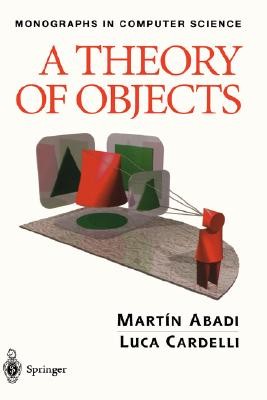| A Theory of Objects 1996. Corr. 2nd Edition Contributor(s): Abadi, Martin (Author), Cardelli, Luca (Author) |
|
 |
ISBN: 0387947752 ISBN-13: 9780387947754 Publisher: Springer OUR PRICE: $237.49 Product Type: Hardcover - Other Formats Published: August 1996 Annotation: Procedural languages are generally well understood. Their foundations have been cast in calculi that prove useful in matters of implementation and semantics. So far, an analogous understanding has not emerged for object-oriented languages. In this book the authors take a novel approach to the understanding of object-oriented languages by introducing object calculi and developing a theory of objects around them. The book covers both the semantics of objects and their typing rules, and explains a range of object-oriented concepts, such as self, dynamic dispatch, classes, inheritance, prototyping, subtyping, covariance and contravariance, and method specialization. Researchers and graduate students will find this an important development of the underpinnings of object-oriented programming. |
| Additional Information |
| BISAC Categories: - Computers | Programming - Object Oriented |
| Dewey: 005.131 |
| LCCN: 96017038 |
| Series: Monographs in Computer Science |
| Physical Information: 1.17" H x 6.43" W x 9.51" (1.56 lbs) 396 pages |
| Descriptions, Reviews, Etc. |
| Publisher Description: Procedural languages are generally well understood and their formal foundations cast in the forms of various lambda-calculi. For object- oriented languages however the situation is not as clear-cut. In this book the authors propose and develop a different approach by developing object calculi in which objects are treated as primitives. Using object calculi, the authors are able to explain both the semantics of objects and their typing rules and demonstrate how to develop all of the most important concepts of object-oriented programming languages: self, dynamic dispatch, classes, inheritance, protected and private methods, prototyping, subtyping, covariance and contravariance, and method specialization. Many researchers and graduate students will find this an important development of the underpinnings of object-oriented programming |